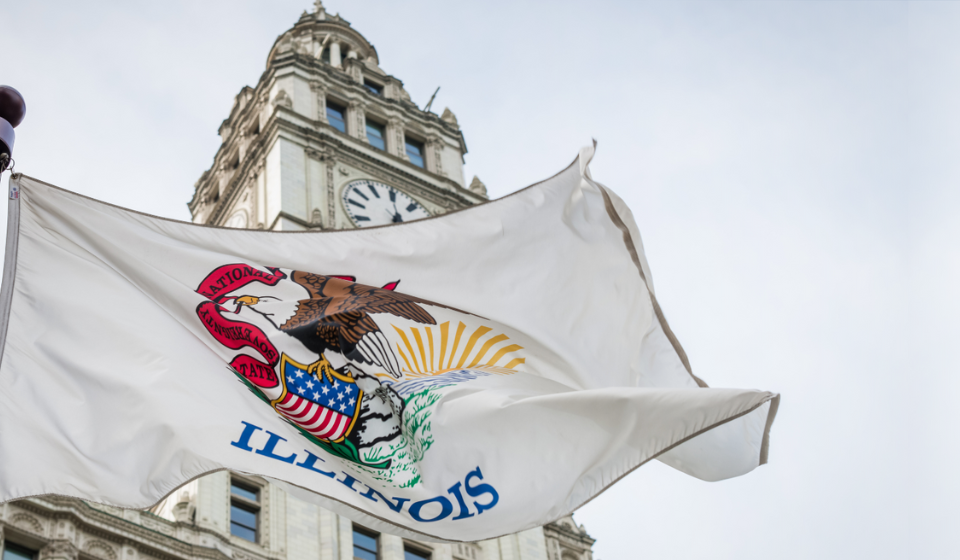Adult Legal System
Building a fair and just legal system means securing more resources, but also fighting for an inclusive process where policy and solutions are guided by research, experts, and those who have direct experience with the criminal legal system through arrest, conviction or incarceration.

Posting bail previously drained Illinois families of millions of dollars. The 2023 end of cash bail in Illinois under the Pretrial Fairness Act puts this money back with families, freeing up millions of dollars that can remain in the community.
SAFE-T Act and Pretrial Fairness Act
In a major piece of legislative reform, ILJP worked with partners in 2021 to pass the SAFE-T Act, the most far-reaching criminal legal reform legislation in recent state history. The Act mandated numerous policing reforms, including body-worn cameras, use-of-force training and expanded decertification powers for law enforcement. One of the most notable reforms in the legislation was the Pretrial Fairness Act, eliminated the use of cash bail as a condition of release from pretrial detention when it went into effect in September 2023. Under the change in the law, people can only be detained pre-trial after a judge weighs evidence and determines that they are a danger to the public or a flight risk. Critically, the elimination of cash bail reduces the financial hardship and systemic inequities that existed under a system held people in jail—sometimes for months or years before their trials – because they did not have enough money to to post bond.
ILJP began working on structural changes to support this reform in 2016 by helping to create the Coalition to End Money Bond (CEMB), which advocated first in Cook County for judges to reduce reliance on cash bail and then for a statewide change to the bond system. The Cook County work resulted in a 2017 order by the Cook County Chief Judge to stop setting cash bail amounts for detainees facing misdemeanor charges.
In the year since cash bail was eliminated, the new pretrial procedure continues to be evaluated by researchers at Loyola University Chicago’s Center for Criminal Justice. The state’s Office of Pretrial Services has created and published a dashboard to provide the public with data on the new pretrial hearings.
R3: Restore. Reinvest. Renew.
When Illinois legalized cannabis in 2020, ILJP joined with partners to ensure that a portion of the revenue generated from new sales tax would be redirected to the communities that had suffered the most harm in the government’s War on Drugs. Under “R3: Restore. Reinvest. Renew”, 25 percent of the sales tax revenue is set aside for grant awards to communities experiencing economic disinvestment and violence. The Illinois Criminal Justice Information Authority administers the competitive program and has provided $244 million in grants for violence prevention, legal aid and reentry services.
The program has two features new to Illinois grant programming. First, there is a rigorous process to determine which communities are eligible for the money, based on historic disinvestment. Second, the law invites communities to apply for grants based on what residents believe are the solutions to problems that have resulted from the disinvestment.
Adult Redeploy Illinois
ILJP was instrumental in the creation of both Juvenile Redeploy Illinois in 2004 and Adult Redeploy Illinois in 2009. These programs provide grants to Illinois counties to offer rehabilitative and support services to individuals who otherwise might have faced incarceration.
The diversions offered in Adult Redeploy have helped thousands of people and saved millions of dollars, according to the Illinois Criminal Justice Information Authority (ICJIA), which administers the program.
There are currently adult programs at 27 sites in 45 counties, including drug courts, mental health courts, veterans courts and intensive supervision probation. The average Adult Redeploy intervention is $5,000, leading to $51 million in taxpayer dollars saved, based on an $46,700 average cost of a year in prison.
Healing Centered Illinois Task Force
The Task Force for a Healing-Centered Illinois was created by the General Assembly in 2023, establishing an official mandate for this state to address the intergenerational trauma caused by the harms of the criminal legal system. ILJP supported the creation of the Task Force, which is chaired by Lt. Governor Juliana Stratton to ensure continuity and support from critical government partners.
ILJP also has helped to create a small workgroup that staffs the Task Force along with the Lt. Governor’s team to ensure the Task Force is guided by objectives outlined in the legislation: to collect data and study the impacts of trauma in Illinois, examine capacity for expanded trauma-informed trainings and identify policies that support the reduction of harm.
It will issue final recommendations in December 2024, outlining how Illinois can become a healing-centered state.
Community Safety/Gun Violence
ILJP supports a public health approach to reducing gun violence with solutions that address trauma and offer support services to those at risk for violence. In addition, ILJP supports systemic reforms that increase resources for neighborhoods where racist policies and the War on Drugs contributed to and exacerbated violence. At the same time, police departments must engage in structural, cultural reforms to reduce community violence in Chicago.
In 2016, in the wake of the murder of Laquan McDonald by a Chicago police officer and a significant spike in shootings and homicides, ILJP joined a coalition of more than 40 organizations that developed a set of guiding principles to address the violence. Then, in 2020, after the historic national uprising and reckoning over the police murder of George Floyd in Minneapolis, ILJP helped convene the Justice 20/20 Network, an inclusive coalition of community groups that are advancing solutions to create safe and thriving communities, reformed policing practices and a more equitable court system. Today, ILJP continues to provide the technical and structural support for the Justice 20/20 network to continue its work.

In 2024 the U.S. Surgeon General declared firearm arm injuries a public health crisis? Since 2020, firearm‑related injury has been the leading cause of death for U.S. children and adolescents (ages 1–19), surpassing motor vehicle crashes, cancer, and drug overdose and poisoning. In 2022, 48,204 total people died from firearm‑related injuries, including suicides, homicides, and unintentional deaths.
Sentencing Reform
ILJP works closely with the Sentencing Policy Advisory Council (SPAC) to ensure effective evaluation of current and recommended sentencing policies. SPAC was created in 2009 as part of an ILJP-backed policy package to collect, analyze, and present data from all relevant sources to determine the consequences of sentencing legislative proposals and to review the effectiveness and efficiency of current sentencing policies and practices.
ILJP has worked with the past two gubernatorial administrations to craft sentencing policy that avoids excessive punishments and also provides mechanisms to reduce the state’s prison population. ILJP advocates for a sentencing system that permits discretion so that individuals are assessed and sentenced in a way that makes them more likely to succeed in life and not commit future crimes.
Resources
The Justice, Equity, and Opportunity (JEO) Initiative convened a group of subject-matter experts to advance Illinois’ adoption of a more trauma-informed and healing-centered justice system.
Reallocating state resources to develop more effective, less expensive community-based alternatives to incarceration and improve access to interventions that reduce crime.

